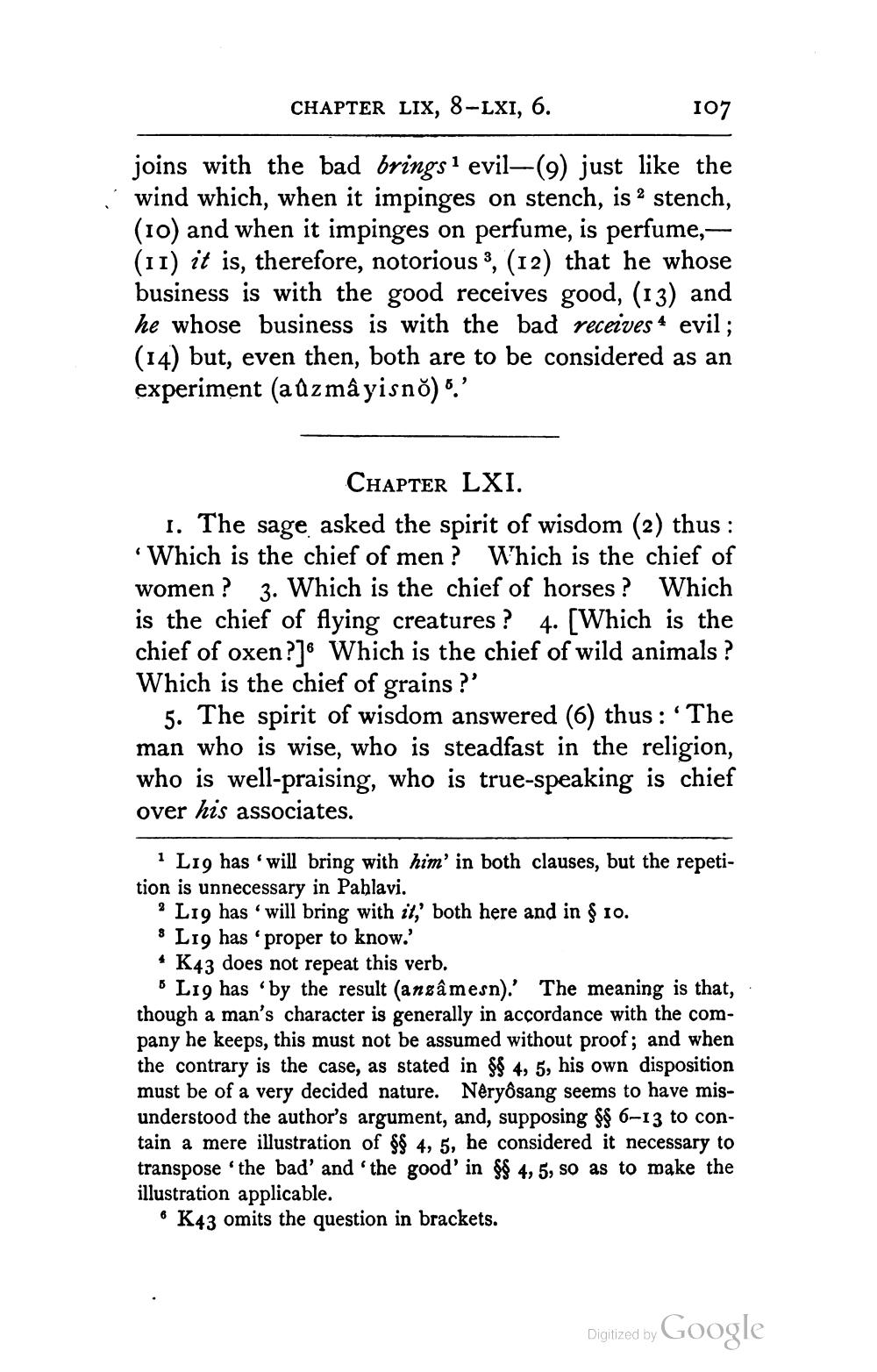________________
CHAPTER LIX, 8-LXI, 6.
107
joins with the bad brings 1 evil-(9) just like the wind which, when it impinges on stench, is a stench, (10) and when it impinges on perfume, is perfume,(11) it is, therefore, notorious 3, (12) that he whose business is with the good receives good, (13) and he whose business is with the bad receives 4 evil; (14) but, even then, both are to be considered as an experiment (a uz mâyisno) •.'
CHAPTER LXI. 1. The sage asked the spirit of wisdom (2) thus : Which is the chief of men ? Which is the chief of women? 3. Which is the chief of horses? Which is the chief of flying creatures ? 4. Which is the chief of oxen?]Which is the chief of wild animals ? Which is the chief of grains ?'
5. The spirit of wisdom answered (6) thus :'The man who is wise, who is steadfast in the religion, who is well-praising, who is true-speaking is chief over his associates.
1 L19 has will bring with him' in both clauses, but the repetition is unnecessary in Pahlavi.
? L19 has will bring with it,' both here and in § 10. 8 L19 has proper to know.' • K43 does not repeat this verb.
L19 has ‘by the result (angâmesn).' The meaning is that, though a man's character is generally in accordance with the company he keeps, this must not be assumed without proof; and when the contrary is the case, as stated in $$ 4, 5, his own disposition must be of a very decided nature. Neryosang seems to have misunderstood the author's argument, and, supposing $$ 6-13 to contain a mere illustration of $$ 4, 5, he considered it necessary to transpose the bad' and 'the good' in $$ 4, 5, so as to make the illustration applicable.
6 K43 omits the question in brackets.
Digitized by Google




